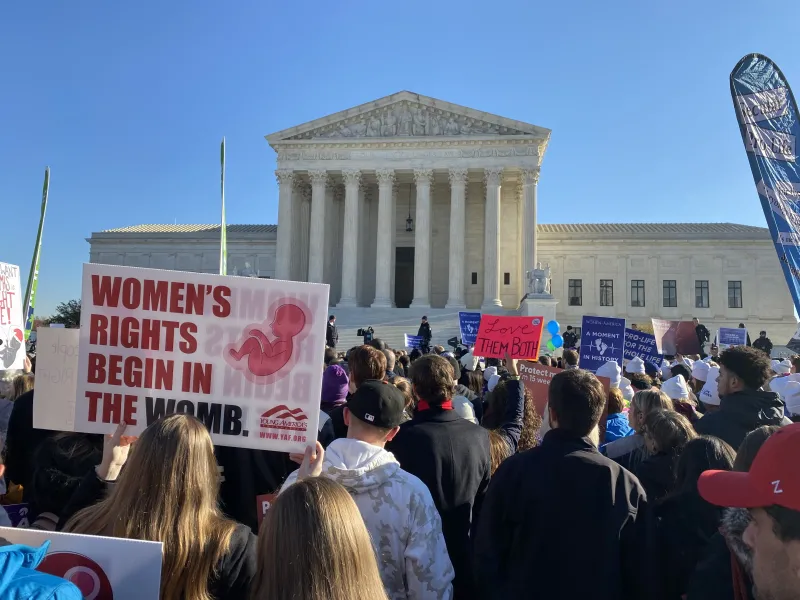
Washington D.C., Jan 21, 2022 / 16:00 pm (CNA).
The U.S. Supreme Court on Thursday declined to send a legal challenge against a Texas abortion law back to a lower federal court— which has already blocked enforcement of the law once— sending the challenge instead to the Texas Supreme Court.
The Jan. 20 ruling, which leaves the law in place for now, is the latest in a long series regarding the Texas “heartbeat” abortion law, in effect since September 2021, which bans abortions after the detection of a fetal heartbeat except in medical emergencies.
The law relies on private lawsuits filed by citizens to enforce the ban. This framework allows for awards of at least $10,000 for plaintiffs who successfully sue those who perform or aid and abet abortions after a fetal heartbeat can be detected.
The case will now proceed to the Texas Supreme Court, which the 5th U.S. Circuit Court of Appeals has asked to rule on whether certain state licensing officials, cited in a December Supreme Court opinion, have the power to enforce the abortion law. The law will remain in place at least until the Texas Supreme Court responds to the circuit court.
In the Jan. 20 opinion, the Supreme Court declined a request brought by several pro-abortion organizations to send the case, Whole Woman’s Health v. Jackson, “without delay” back to the district court.
The Supreme Court’s decision to decline the request was given without explanation. Three justices dissented from the opinion, with Justice Sonya Sotomayor decrying the decision to send the case to the state Supreme Court as serving to “extend the deprivation of the federal constitutional rights of its citizens through procedural manipulation.”
The latest ruling follows a Dec. 10 decision by the court that the abortion providers can continue their legal challenge, but that the abortion law will remain in effect while the challenge plays out.
In that December opinion, the Supreme Court did not rule on the constitutionality of the Texas law, but rather that the abortion providers’ lawsuit against certain executive licensing officials, such as the executive director of the Texas Medical Board, can continue. State court clerks, state judges, and the Texas attorney general cannot be sued, that ruling states.
A three-judge panel of the Fifth Circuit had issued a ruling reinstating the law on Oct. 8, reversing an Oct. 6 decision to halt the law’s enforcement by Judge Robert Pitman of the Western District of Texas.
In a 5-4 decision issued Sept. 1, the Supreme Court declined to block the law from taking effect, but in late October decided to consider two challenges— one brought by the federal government, and the other by abortion providers— to the law on an expedited basis.
If you value the news and views Catholic World Report provides, please consider donating to support our efforts. Your contribution will help us continue to make CWR available to all readers worldwide for free, without a subscription. Thank you for your generosity!
Click here for more information on donating to CWR. Click here to sign up for our newsletter.




Leave a Reply